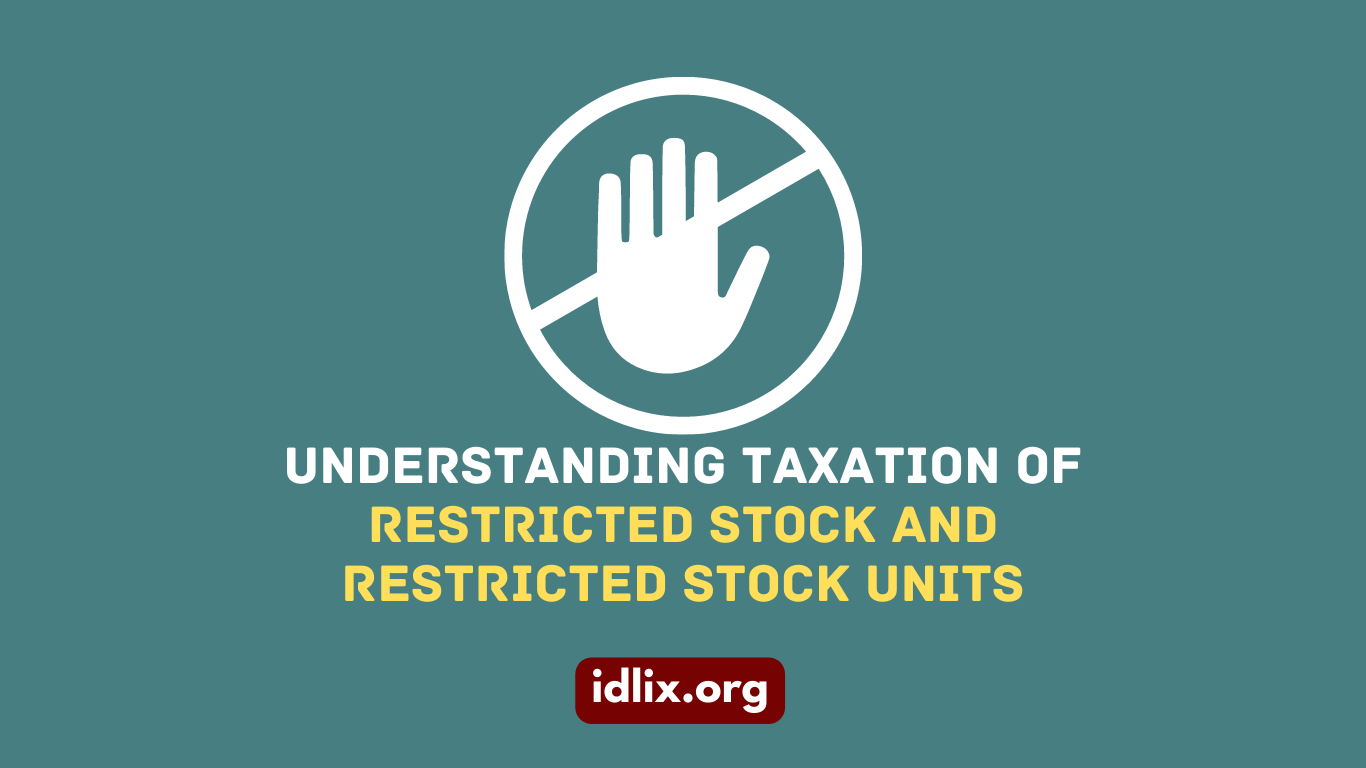idlix.org - Restricted stock and restricted stock units (RSUs) are forms of equity compensation that are commonly used by companies to incentivize and retain key employees. However, the taxation of restricted stock and RSUs can be complex and confusing.
What is Restricted Stock
Restricted stock is a form of equity compensation in which an employer grants shares of company stock to an employee. However, the employee does not immediately own the shares. Instead, the shares are subject to a vesting schedule, which means that the employee must meet certain conditions, such as remaining employed with the company for a certain period of time, before they can take ownership of the shares.
What are Restricted Stock Units (RSUs)
RSUs are similar to restricted stock in that they are a form of equity compensation that is subject to a vesting schedule. However, with RSUs, the employee does not actually receive any shares of company stock. Instead, the employer promises to deliver a certain number of shares of stock to the employee at a future date, once the vesting conditions have been met.
Taxation of Restricted Stock and RSUs for Employees
The taxation of restricted stock and RSUs for employees depends on several factors, including the vesting schedule, the fair market value of the shares at the time of vesting, and the type of equitycompensation plan offered by the employer.
1. Ordinary Income
When an employee receives restricted stock or RSUs, they are typically subject to ordinary income tax on the fair market value of the shares at the time they vest. This means that the employee must report the value of the shares as income on their tax return and pay income tax on that amount.
2. Capital Gains
Once the employee takes ownership of the shares, any subsequent gains or losses are treated as capital gains or losses. If the employee sells the shares at a higher price than the fair market value at the time of vesting, they will realize a capital gain. However, if they sell the shares at a lower price than the fair market value at the time of vesting, they will realize a capital loss.
3. Section 83(b) Election
Employees who receive restricted stock can make a Section 83(b) election, which allows them to pay taxes on the fair market value of the shares at the time they are granted, rather than when they vest. This can be advantageous if the value of the shares is expected to increase significantly over time.
Taxation of Restricted Stock and RSUs for Employers
Employers must also consider the taxation implications of offering restricted stock and RSUs to their employees. Here are some key factors to consider:
1. Compensation Expense
Employers must record a compensation expense for the fair market value of the shares at the time they are granted to the employee. This expense is recognizedover the vesting period and is tax-deductible for the employer.
2. Withholding and Reporting
Employers are responsible for withholding taxes on the fair market value of the shares at the time of vesting and for reporting the value of the shares on the employee's Form W-2. Failure to withhold and report taxes properly can result in penalties for the employer.
3. Section 409A
Employers must comply with Section 409A of the Internal Revenue Code, which sets strict rules for the timing of payments for deferred compensation, including RSUs. Failure to comply with Section 409A can result in severe tax penalties for the employee.
Tips for Managing Taxation of Restricted Stock and RSUs
1. Understand the Tax Implications
It's important for both employees and employers to understand the taxation implications of restricted stock and RSUs. This includes the timing of taxes, the calculation of taxes, and the reporting requirements.
2. Plan for Withholding
Employers should plan for withholding taxes on the fair market value of the shares at the time of vesting. This can help avoid unexpected tax liabilities for employees and penalties for the employer.
3. Consider a Section 83(b) Election
Employees who receive restricted stock should consider making a Section 83(b) election if they expect the value of the shares to increase significantly over time. This can provide a tax advantage by allowing them to pay taxes on the shares at a lower value.
4. Consult a Tax Professional
Restricted stock and RSU plans can be complex, and it's important for both employees and employers to consult with a tax professional to ensure compliance with tax laws and regulations.
Restricted stock and RSUs are valuable tools for employers to incentivize and retain key employees. However, the taxation of these forms of equity compensation can be complex and confusing. The tax implications for employees and employers depend on several factors, including the vesting schedule, the fair market value of the shares at the time of vesting, and the type of equity compensation plan offered by the employer. By understanding the taxation implications of restricted stock and RSUs, both employees and employers can make informed decisions and avoid unexpected tax liabilities and penalties. Consultation with a tax professional can help ensure compliance with tax laws and regulations and provide guidance on managing the taxation of restricted stock and RSUs.
